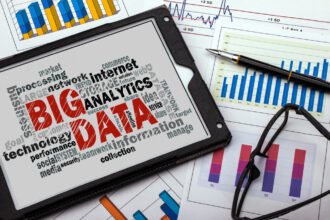Companies spend a small fortune continually investing and reinvesting in making their business analysts self-sufficient with the latest and greatest analytical tools. Most companies have multiple project teams focused on delivering tools to simplify and improve business decision making. There are  likely several standard tools deployed to support the various data analysis functions required across the enterprise: canned/batch reports, desktop ad hoc data analysis, and advanced analytics.
likely several standard tools deployed to support the various data analysis functions required across the enterprise: canned/batch reports, desktop ad hoc data analysis, and advanced analytics.
There’s never a shortage of new and improved tools that guarantee simplified data exploration, quick response time, and greater data visualization options, Projects inevitably include the creation of dozens of prebuilt screens along with a training workshop to ensure that the users understand all of the new whiz bang features associated with the latest analytic tool incarnation.
Unfortunately, the biggest challenge within any project isn’t getting users to master the various analytical functions; it’s ensuring the users understand the underlying data they’re analyzing.
If you take a look at the most prevalent issue with the adoption of a new business analysis tool is the users’ knowledge of the underlying data. This issue becomes visible with a number of common problems: the misuse of report data, the misunderstanding of business terminology, and/or the exaggeration of inaccurate data. Once the credibility or usability of the data comes under scrutiny, the project typically goes into “red alert” and requires immediate attention. If ignored, the business tool quickly becomes shelfware because no one is willing to take a chance on making business decisions based on risky information.
All too often the focus on end user training is tool training, not data training. What typically happens is that an analyst is introduced to the company’s standard analytics tool through a “drink from a fire hose” training workshop. All of the examples use generic sales or HR data to illustrate the tool’s strengths in folding, spindling, and manipulating the data. And this is where the problem begins: the vendor’s workshop data is perfect.
There’s no missing or inaccurate data and all of the data is clearly labeled and defined; classes run smoothly, but it just isn’t reality Somehow the person with no hands-on data experience is supposed to figure out how to use their own (imperfect) data. It’s like someone taking their first ski lesson on a cleanly groomed beginner hill and then taking them up to the top of an a black diamond (advanced) run with step hills and moguls. The person works hard but isn’t equipped to deal with the challenges of the real world. So, they give up on the tool and tell others that the solution isn’t usabl
All of the advanced tools and manipulation capabilities don’t do any good if the users don’t understand the data. There are lots of approaches to educating users on data. Some prefer to take a bottom-up approach (reviewing individual table and column names, meanings, and values) while others want to take a top-down approach (reviewing subject area details, the associated reports, and then getting into the data details).
There are certainly benefits of one approach over the other (depending on your audience); however, it’s important not to lose sight of the ultimate goal: giving the users the fundamental data knowledge they need to make decisions. The fundamentals that most users need to understand their data include a review of
- the business subject area associated with their dat
- business terms, definitions, and their associated data attributes
- data values and their representations
- business rules and calculations associated with the individual values
- the data’s origin (a summary of the business processes and source system)
The above details may seem a bit overwhelming if you consider that most companies have mature reporting environments and multi-terabyte data warehouses. However, we’re not talking about training someone to be an expert on 1000 data attributes contained within your data warehouse; we’re talking about ensuring someone’s ability to use an initial set of reports or a new tool without requiring 1-on-1 training. It’s important to realize that the folks with the greatest need for support and data knowledge are the newbies, not the experienced folks.
There are lots of options for imparting data knowledge to business users: a hands-on data workshop, a set of screen videos showing data usage examples, or a simple set of web pages containing definitions, textual descriptions, and screen shots. Don’t get wrapped up in the complexities of creating the perfect solution – keep it simple. I worked with a client that deployed their information using a set of pages constructed with PowerPoint that folks could reference in a the company’s intranet. If your users have nothing – don’t’ worry about the perfect solution – give them something to start with that’s easy to use.
Remember that the goal is to build users’ data knowledge that is sufficient to get them to adopt and use the company’s analysis tools. We’re not attempting to convert everyone into data scientists; we just want them to use the tools without requiring 1-on-1 training to explain every report or data element.
Photo courtesy of NASA. Nasa Ames Research Center engineer H Julian “Harvey” Allen illustrating data knowledge (relating to capsule design for the Mercury program)








